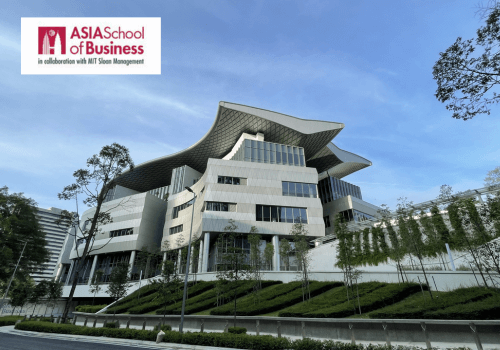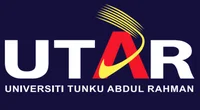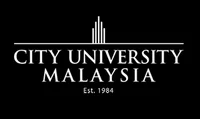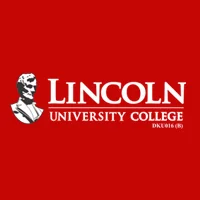In recent years, Malaysia has emerged as a prominent destination for students seeking higher education, particularly in business administration.
Renowned for its diverse cultural landscape, economic stability, and high-quality educational institutions, Malaysia offers an ideal environment for aspiring professionals to pursue MBA courses.
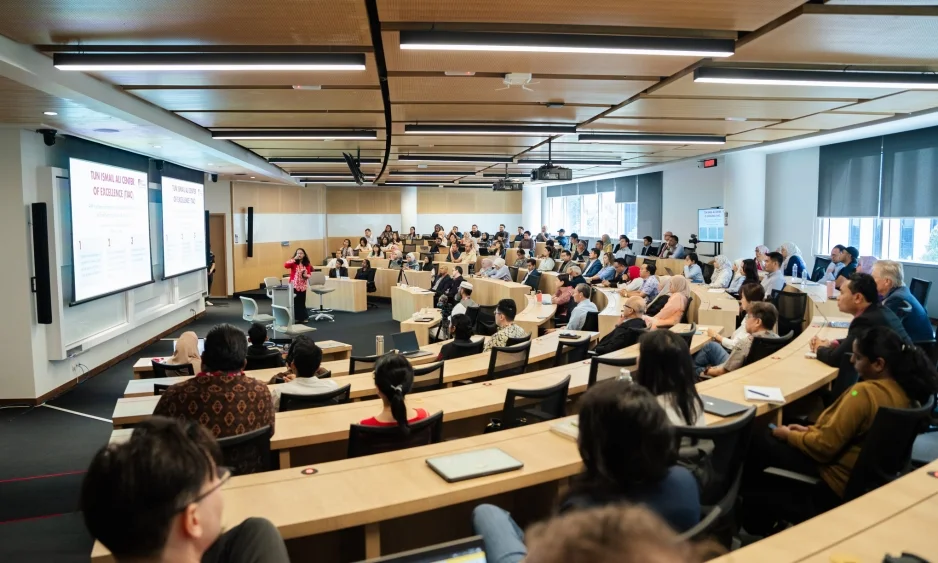
Choosing to study for an MBA in Malaysia presents many opportunities to gain a global perspective, enhance skills, and expand career horizons.
By immersing yourself in Malaysia's dynamic business environment, you can develop a deeper understanding of international markets and cross-cultural management practices.
Many of Malaysia’s highly esteemed universities offer comprehensive MBA programs tailored to meet the needs of students from diverse backgrounds.
Whether opting for full-time, part-time, executive, or accelerated MBA courses, you have the flexibility to choose a program that aligns with your schedule and career goals.
Which universities in Malaysia offer MBA programs?
Here are 12 universities and MBA schools in Malaysia that offer best MBA programs:
1. Asia School of Business (ASB)
The Asia School of Business (ASB) distinguishes itself as a leading institution for management education within the vibrant business landscape of Asia.
ASB is located in Kuala Lumpur and the result of a partnership between the MIT Sloan School of Management and Bank Negara Malaysia.
The MBA program at ASB emphasizes practical experiences through projects, internships, and immersive study trips worldwide.
Additionally, students benefit from personalized guidance from esteemed faculty and industry professionals, empowering them to tackle real-world challenges effectively.
- Duration: 1 year
- Estimated fees: USD35,000
- Entry requirements: A Bachelor's degree (or equivalent) from a recognised institution, min CGPA 2.50, at least 2 years of working experience, and a proof of English proficiency.
| English proficiency tests | Score |
| IELTS | Band 6.0 |
| TOEFL | 60 (Internet-based), 8.5 Essentials (online) |
| Cambridge English Advanced/Proficiency | 169 |
| Pearson Test of English (PTE) | 59 (Academic) |
| Malaysian University English Test (MUET) | Band 4 |
2. Asia Pacific University (APU)
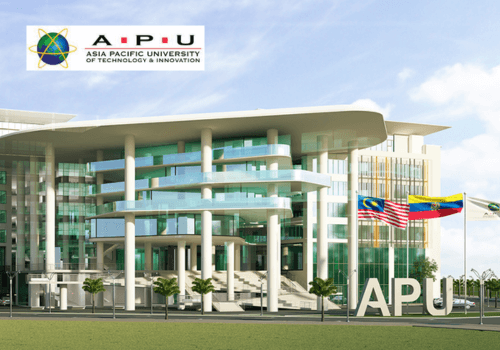
The Asia Pacific University (APU), located in Kuala Lumpur, provides a thorough Master of Business Administration (MBA) curriculum intended to empower students with the expertise and abilities needed to succeed in the contemporary business landscape.
For an enriched global educational journey, students have the option of exploring the APU-DMU Dual Degree Scheme. This initiative enables them to obtain two degrees – one conferred by APU and another by De Montfort University (DMU) in the United Kingdom – upon completing their studies.
- Duration: 1 year (full time), 2-3 years (part time)
- Intakes: June and September (full time) | March, June, August, October (Part time)
- Estimated fees: USD8,820
- Entry requirements:
Bachelor's degree in related fields, min. CGPA 2.00 (accepted by the Senate), or min CGPA 2.00 (subject to rigorous internal assessment)
Or
Bachelore's degree in non-related fields, min. CGPA 2.00 accepted by the Senate, with relevant working experience (subject to a rigorous internal assessment) or without working experience (subject to passing pre-requisite courses), and IELTS: 6.0
3. Management and Science University (MSU)
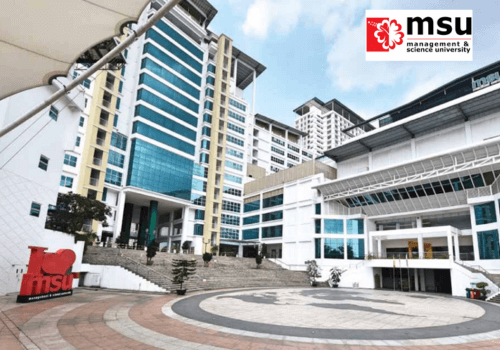
Management and Science University (MSU) provides an MBA program tailored to prepare students with the competencies and understanding required to emerge as leaders in the ever-evolving global business arena.
Their course structure prioritizes practical utilization, blending theoretical concepts with hands-on case studies, industry immersion, and networking avenues to enrich the student experience.
The students can choose a specialization to personalize their degree and gain expertise in a specific field like Islamic Banking and Finance, Global Marketing, or Project Management.
- Duration: 1.5 - 5 years
- Estimated fees: USD 9,196
- Entry requirements: A Bachelor's degree recognized by the HEP Senate, min. CGPA of 2.50 or its equivalent, or min. CGPA 2.50 with minimum of 5 years of working experience in relevant field.
4. Taylor's University
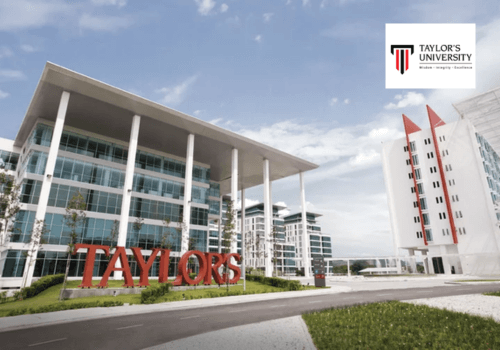
Taylor's University provides a highly respected MBA program aimed at enabling students to thrive in the current dynamic business environment.
Their curriculum integrates a solid grounding in business theory with an emphasis on hands-on application, guaranteeing graduates possess the expertise and understanding to effect tangible change.
Furthermore, students will acquire practical experience through engagement in case studies, industry projects, and the possibility of international exposure, ensuring they depart with a diverse skill set.
Enrolling as a Taylor's MBA student affords individuals a thorough comprehension of fundamental business domains such as finance, marketing, and management.
- Duration: 1 year (full time)
- Intakes: February, April, June, September, and November
- Estimated fees: USD 15, 159
- Entry requirements: Bachelor's degree in the fields or related fields with CGPA above 2.75, or CGPA between 2.75 and 2.50 with 2 years of working experience and an interview, or CGPA less than 2.50 with 5 years of working experience, and IELTS: 6.0
5. University of Nottingham Malaysia
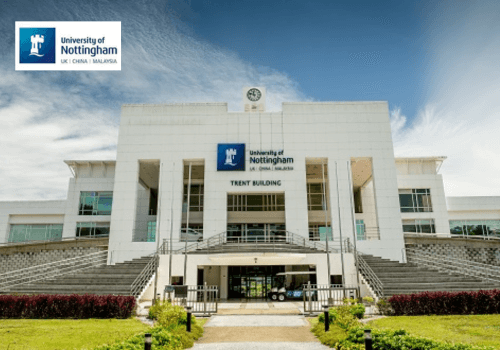
The MBA program offered by the University of Nottingham Malaysia is highly esteemed, tailored to furnish students with the expertise and capabilities necessary to thrive in today's dynamic business environment.
Distinguished by its global focus and robust industry affiliations, this program holds particular appeal.
At the heart of the Nottingham MBA curriculum lies a commitment to real-world relevance. Students engage with contemporary business and management issues such as sustainability, innovation, and ethics.
Through the integration of case studies, students are encouraged to scrutinize authentic business scenarios, fostering critical thinking and problem-solving acumen.
An exceptional feature of this program is its emphasis on international exposure. Students have the opportunity to pursue up to two modules at the University's partner institution in Singapore, PSB Academy.
- Duration: 1 year (full time)
- Intakes: September (full time) & February, June, September, and November (part time)
- Estimated fees: USD 14, 487
- Entry requirements: A relevant second class honours degree (or international equivalent), or relevant professional qualification deemed equivalent to a first degree with honours, a proof of English language proficiency, plus at least 3 (or more years) of full-time management or leadership work experience.
| English proficiency tests | Score |
| IELTS | Band 6.5 (with no less than 6.0 in each element) |
| TOEFL (iBT) | 67 (min. 20 in Speaking and 19 in all other elements) |
| Pearson Test of English (PTE) | 71 (Academic and no less than 65 in each element) |
| Malaysian University English Test (MUET) | Band 4 |
6. UCSI University
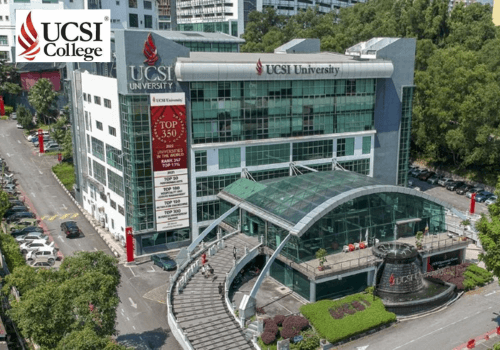
UCSI University presents an innovative MBA program aimed at propelling students towards achievement in the continuously evolving business realm. The MBA curriculum at UCSI emphasizes practicality, furnishing students with the necessary tools and frameworks to thrive in contemporary business environments.
A distinctive aspect of the program is the elective course in Blue Ocean Strategy, a unique offering exclusive to Malaysian universities. This elective enables students to cultivate inventive strategies for carving out uncontested market spaces.
- Duration: Minimum 1 year
- Intakes: January, May and September
- Estimated fees: USD 11,857
- Entry requirements: A bachelor's degeree in the field or related field, min CGPA of 2.50, equivalent (accepted by the HEP Senate), or min. CGPA of 2.00 (subject to rigorous internal assessment), and a proof of English language proficiency.
| English proficiency tests | Score |
| IELTS | 6.0 |
| TOEFL (internet-based) | 60 |
| Pearson Test of English (PTE) | 59 |
| Malaysian University English Test (MUET) | Band 4 |
| Cambridge English Qualification and Test | 169 |
7. Selangor Business School (SBS)
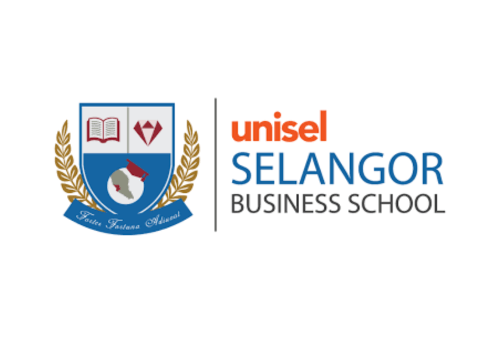
The Selangor Business School (SBS) provides a professionally-oriented MBA program tailored to empower students with the expertise and competencies essential for success in the competitive business market.
- Duration: 1.5 - 3 years (full time), 2-4 years (part time)
- Intakes: April, August, and November
- Estimated fees: USD5,673
- Entry requirements: Bachelor's degree or equivalent with CGPA 2.50 and above, or CGPA below 2.50 with 5 years of working exerience, and a proof of English language proficiency.
| English proficiency tests | Score |
| IELTS | 6.0 |
| TOEFL | 500 |
| Malaysian University English Test (MUET) | Band 4 |
8. Putra Business School (PBS)
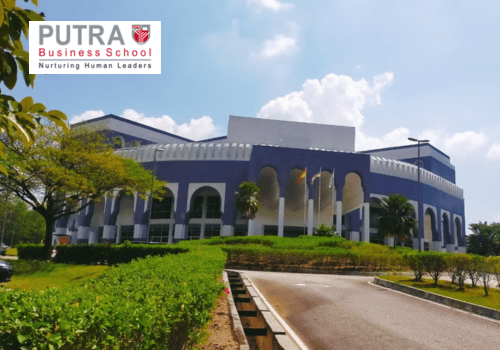
Putra Business School (PBS) offers a comprehensive MBA program designed to equip students with the expertise to thrive in today's dynamic business landscape.
Students can choose from a variety of specializations, including Corporate Governance, Human Potential Management, Marketing, Finance, and International Business.
PBS provides both physical and open and distance learning (ODL) pathways for its MBA program, accommodating students with diverse schedules and commitments.
- Duration: 1-2 years (full time), 2-4 years (part time)
- Intakes: January, May and September
- Estimated fees: USD7,774 (ODL), USD8,981 (Physical)
- Entry requirements: A Bachelor's degree in related fields, min CGPA of 2.50 (accepted by the HEP Senate), or min CGPA 2.00 (subject to rigorous internal assessment), or a Bachelor's degree in non-related fields, min CGPA of 2.00 (as accepted by the HEP Senate) and without relevant working experience, and a proof of English language proficiency
| English proficiency tests | Score |
| IELTS | 6.0 |
| TOEFL | 60 (iBT), 550 (PBT) |
| Pearson Test of English (PTE) | 59 |
| Malaysian University English Test (MUET) | Band 4 |
| Cambridge English Qualification and Test | 169 |
| ELS | 109 |
9. University of Malaya (UM)
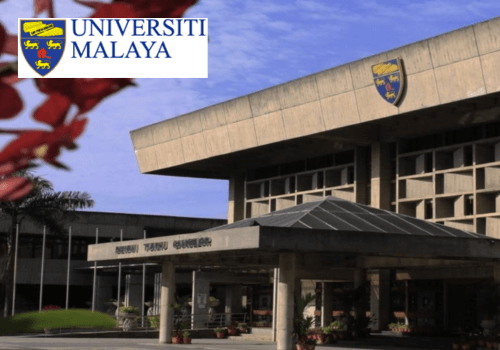
Universiti Malaya (UM) is recognized as one of Malaysia's premier universities, offering an MBA program aimed at preparing students for leadership positions in various industries.
The curriculum focuses on establishing a solid groundwork in essential business principles, covering areas such as finance, accounting, marketing, and management.
- Duration: 1.5 - 4 years
- Intakes: October and March
- Estimated fees: USD 12,032
- Entry requirements: A Bachelor's degree in any field, min CGPA 3.00, a minimum 3 years full-time working experience after completing first degree, a proof of English proficiency test, and pass the interview by the faculty.
| English proficiency tests | Score |
| IELTS | 6.0 |
| TOEFL | 213 (computer), 550 (PBT) |
| Pearson Test of English (PTE) | 55 |
10. Universiti Tenaga Nasional (UNITEN)
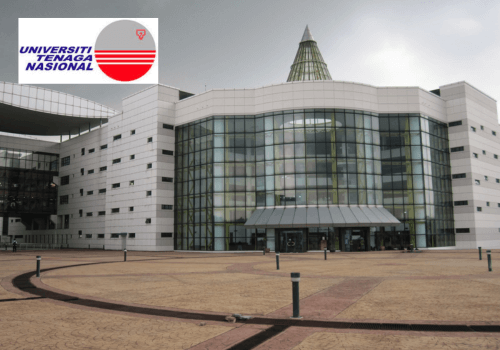
The MBA program at Universiti Tenaga Nasional (UNITEN) is structured to empower students with the necessary knowledge and skills to thrive in today's fiercely competitive business landscape.
The curriculum offers a thorough grounding in fundamental business areas such as finance, marketing, human resources, and strategy.
Certain specializations, like the MBA for Leaders program, may integrate industry involvement and experiential learning to offer a comprehensive comprehension of contemporary industry hurdles and technological progressions.
- Duration: 1-3 years
- Intakes: January, July, and September
- Estimated fees: USD1,650 (registration fees), USD9,252 (tuition fees)
- Entry requirements:
A Bachelor's degree in related fields, min CGPA 2.50 (accepted by the senate) or min CGPA 2.00 (subject to a rigorous internal assessment).
Or
A Bachelor's degree in non-related fields, min CGPA 2.00, accepted by the senate, with relevant working experience (subjecct to rigorous internal assessment), or without relevant working experience (subject to passing pre-requisite courses), and a proof of English proficiency test (IELTS: 6.0 or TOEFL: 550)
11. Multimedia University (MMU)
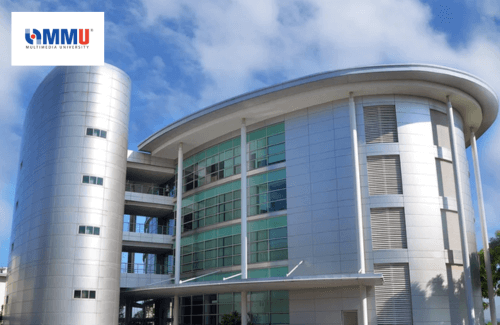
The MBA program at Multimedia University (MMU) aims to provide students with the knowledge and skills necessary to succeed in today's constantly changing business landscape.
- Duration: 1-3 years
- Intakes: February, July, and October
- Estimated fees: USD5,879
- Entry requirements:
A Bachelor's degree in related fields, min CGPA 2.50 (accepted by the senate) or min CGPA 2.00 (subject to rigorous internal assessment)
Or
A bachelor's degree in non-related fields, min CGPA 2.00 with relevant working experience (subject to rigorous internal assessment) or without working experience (subject to passing pre-requisite courses), and a proof of English proficiency test (IELTS: 6.0)
12. SEGi University
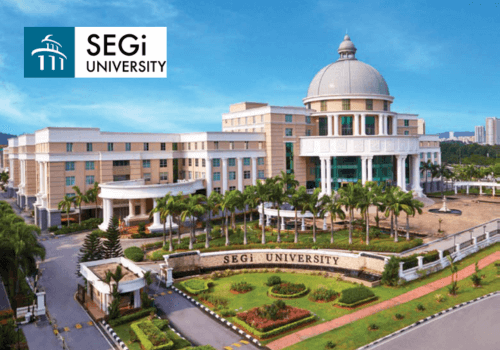
SEGi University offers a range of specialized MBA programs including Finance, Marketing, Human Resource Management, General Management, and Global Business, providing students with diverse options to tailor their education.
These programs emphasize practical learning methods, enabling students to address real-world business issues through hands-on projects and in-depth case studies.
Additionally, students have the opportunity to enroll in an MBA program in partnership with the University of Hertfordshire, UK, which can be completed within 12 months and grants graduates dual qualifications upon successful completion.
- Duration: 1 year
- Intakes: February, July, and October
- Estimated fees: USD6,821
- Entry requirements: A Bachelor's degree with a min CGPA of 2.50 and IELTS 6.0
What are the admission requirements to study MBA in Malaysia?
Admission requirements for MBA programs in Malaysian universities may vary, but most institutions generally ask for the following:
- Educational Qualifications: A bachelor’s degree from a recognized institution, often with a minimum CGPA requirement.
- Work Experience: Preferred for many programs, typically 2 to 5 years of relevant work experience.
- English Proficiency: International students must provide proof of English proficiency through tests like IELTS or TOEFL.
- Entrance Exams: Some universities may require GMAT or GRE scores.
- Letters of Recommendation: References from employers or academic supervisors may be required.
- Statement of Purpose (SOP): A personal statement outlining your goals and motivation for pursuing an MBA in Malaysia.
- Interview: Some universities conduct interviews to evaluate candidates.
- Resume/CV: A detailed resume showcasing your academic and professional achievements.
- Transcripts: Official transcripts from previous institutions.
- Application Form: Submission of the completed online application form
Check out our guide if you are not not sure whether to take IELTS or TOEFL for your MBA in Malaysia.
5 reasons why Malaysia is the best place to study for your MBA
1. Save a lot on tuition fees
You can take your MBA at a fraction of the cost of MBA programmes in the USA, UK, Australia and Singapore.
From major cities like Kuala Lumpur to smaller cities like Johor Bahru and Penang, there are universities that are sure to fit your budget.
Overall, the tuition fees of MBA courses in Malaysia are considerably more affordable compared to other countries.
| Country | Entire course fee |
| Malaysia | US$ 3,500 - 16,500 |
| USA | US$ 15,000 - 30,000 |
| UK | US$ 9,000 |
| Australia | US$ 20,000 |
| Singapore | US$ 15,000 - 30,000 |
However, the student-friendly course fees in Malaysia do not mean that the quality of your learning experience and MBA degree will be lacking in any way.
The Malaysian government takes the standards by which educational institutions operate very seriously, with the enforcement of The Malaysian Qualifications Agency Act, 2007. This Act ensures that universities in Malaysia are constantly monitored so that students are provided with a quality education that is up-to-date, relevant to the industry, and recognised internationally.
2. World's best universities
Malaysia is home to some of the world's distinguished universities. In the 2024 QS World University Rankings, University Malaya ranked at number 65, Universiti Sains Malaysia at 137, Universiti Putra Malaysia at 158, Universiti Kebangsaan Malaysia at 159, and Universiti Teknologi Malaysia at 188, out of almost 1,000 institutions. If you take your MBA in any of the mentioned universities, you would be studying in one of the top 300 universities across the globe!
There are also Malaysian branches of several high-ranking universities such as the University of Nottingham, Heriot-Watt University and University of Reading in Malaysia.These institutions are a great option if you are keen on getting a degree from an advanced nation like the UK, as you can accomplish that in Malaysia by studying at the branch campuses of these universities.
This way, you can earn your foreign degree with the same prestige, at a lesser price! For example, the MBA course offered by the University of Nottingham in UK is GBP 30,200 (USD 38,444), but you can get the same degree in the University of Nottingham Malaysia for only MYR 68,365 (USD14,485).
Plus, courses usually come with the same syllabi as the ones offered at the home institutions, so you would be going through the same content. In other words, you won’t be missing out! Additionally, there are intakes throughout the year. Intake times vary widely by location, though most MBA programmes offer multiple start times. You can use EasyUni to find the intake dates for the universities you are interested in.
3. Low cost of living
With economical prices for food, clothing, and housing, Malaysia is an excellent choice for studying for an MBA. In fact, Malaysia’s capital city, Kuala Lumpur, remains one of the most inexpensive cities in the world, ranking 28th out of 160 cities for affordability in the 2024 QS ranking for Best Student Cities.
As a general estimate, you only need USD 5,000 for a whole year, without having to compromise your quality of life, according to Education Malaysia Global Services. Here comes the fun part – with so little money spent on tuition fees and living expenses, what can you do with all that extra money you potentially saved for yourself? Use it for your downtime, of course!
Malaysia is home to many beautiful places that you can travel to, where you can just chill out and take in the sights. Foodies, especially, will have the time of their lives trying out all of the nation’s delicacies. Go on a food hunt and eat ikan bakar (charcoal-grilled fish), roti canai (Indian flat bread) and curry laksa (spicy curried noodle soup) – all of which you will find featured in Lonely Planet’s ‘Ultimate Eatlist 2018’. If nightlife is important to you, you’re in luck because Kuala Lumpur never sleeps. Hit the clubs, bars or hipster cafés and live it up with the locals. Malaysians speak English as a second language, so you don’t have to worry about conversations going wrong.
4. MBA specialisations
While there are general MBAs offered, those wanting to study for an MBA in Malaysia can also specialize in a specific topic, making them standout candidates for employment. This is also advocated by Luc Craen, the managing director of EU Business School, who states that the specialization trend will continue even beyond 2018. In his own words, "people need to be more specialized in certain aspects" in order to meet the ever-changing needs and requirements of companies.
Among the courses offered are MBAs in information technology (IT), marketing, finance, human resources, and international business – with MBA graduates in IT being the most in-demand talent sought after by recruiters in 2018, based on data collected by the Graduate Management Admission Council for their annual Corporate Recruiters Survey Report.
5. Now is the best time to study in Malaysia
Let’s look at the signs, shall we?
- Sign 1: The economic growth of the nation is stable, with World Bank country director Mara K. Warwick even commenting that “Malaysia is a success story”, with the nation moving towards a high income economy under the leadership of a brand new government.
- Sign 2: More and more students are choosing Malaysia as their education home. According to the Malaysian Ministry of Higher Education, the number of international students in tertiary education increased exponentially from 81,000 in 2013 to 136,293 in 2017. As the community of international students expand, so do opportunities to network!
- Sign 3: the government is determined to raise Malaysia’s prominence as a global education hub, so a lot of effort is going into it which in-coming students can benefit from.
One of the government’s moves is to improve management of international students by having the Student Pass issued for the entire duration of the programme, so students no longer need to renew it annually (phew!). Besides that, students are allowed to work part-time during semester breaks or any holiday that stretches beyond 7 days, to gain some employment experience and earn extra pocket money.
Following graduation, students are also able to stay and work in Malaysia. Although the official language of Malaysia is Malay, you will find that the language of instruction in most universities is English. For less proficient speakers of the language – no worries! Universities offer classes for students who wish to improve their English language skills while they study.
Cost of studying MBA in Malaysia for International Students
Pursuing an MBA in Malaysia offers international students both high-quality education and a rich cultural experience. As a growing hub for higher education, Malaysia’s MBA programs are highly sought after by students worldwide.
MBA tuition fees for international students typically range from 30,000 MYR to 70,000 MYR per year, depending on the university. Additionally, the cost of living in Malaysia is affordable, averaging 1,200 to 2,500 MYR per month, covering accommodation, food, transportation, and other daily expenses.
If you're ready to take the next step toward your MBA in Malaysia, contact our advisor for personalized guidance and discover the best programs and universities for you!
 +60173309581
+60173309581







